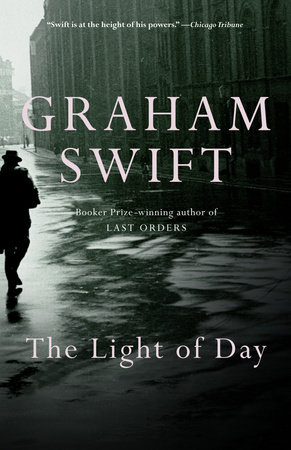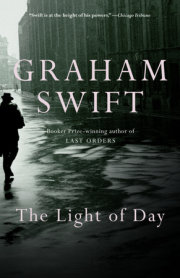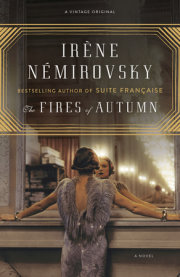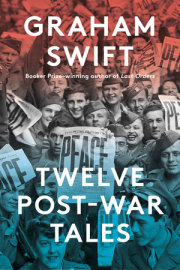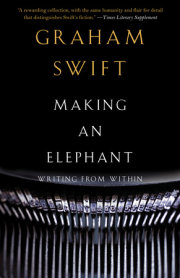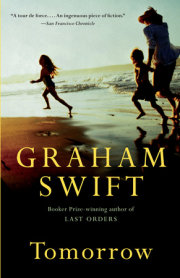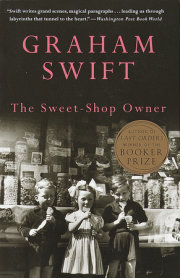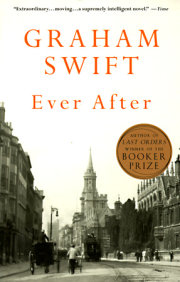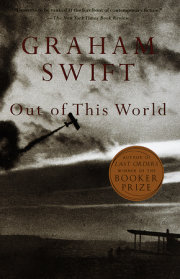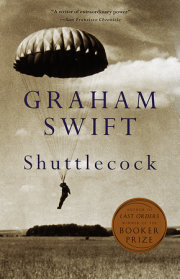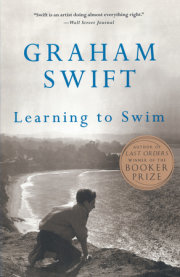1
“Something’s come over you.” That’s what Rita said, over two years ago now, and now she knows it wasn’t just a thing of the moment.
Something happens. We cross a line, we open a door we never knew was there. It might never have happened, we might never have known. Most of life, maybe, is only time served.
Morning traffic in Wimbledon Broadway. Exhausts steaming. I turn the key in the street door, my own breath coming in clouds.
“Something’s come over you, George.”
But she knew even before I did. She’s not in this job for nothing, she can pick up a scent. And soon she’s going to leave me, any day now, I can tell. I can pick up a scent as well.
She’s here before me of course. When isn’t she? She doesn’t sleep these days, she says. “These days” have lasted years. Always awake with the dawn, so why not? Always something to be done. And I pitch up after her. Boss’s privilege. Though it’s not yet half-past eight, and last night I was out on a job till gone two. And today’s a special day.
As I reach the top of the stairs I hear the click and hiss of an already warm kettle being switched on. The computer in her little compartment (we call it the “reception area” but “area” ’s a generous word) is already up and running. It feels like she might have been here all night.
“Cold,” she says, with a shiver at the air I’ve brought in and a little nod to the outside world.
“But beautiful,” I say.
She’ll have been here before the sun hit the streets.
“Coffee or tea?” she says, ignoring my smile—and that word—as if insisting I’ll have had a rough start.
But I don’t have a sleep problem, not now. Though maybe I should. I grab it when I can, catnap, get by on little. An old trick of the trade. And Rita’s sleep problem, if she’s honest about it (and sometimes she is) isn’t really a sleep problem either.
“An empty bed, George, that’s all it is. If there was someone there . . .”
“Tea, I think, Reet. Nice and strong.”
She’s wearing the pale pink top, soft wool, above a charcoal skirt. Round her neck a simple silver chain. The small twinkly stud earrings, a waft of scent. She always gets herself up well, Rita. We have to meet the public, after all.
But the pale pink is like a flag, her favourite colour. A very pale pink—more like white with a blush. I’ve seen her wearing it many times. I’ve seen her wearing a fluffy bathrobe of the same soft pink colour, loosely tied, tits nuzzling inside. Bringing in morning tea.
I go into my office, leaving the door open. The sun is streaming through my first-floor window, the low, blinding sun of a cold November morning, the sun Rita never gets in her compartment, except through the frosted glass of my door.
She follows me in with the tea, and a mug for her- self, a bundle under her arm. There’s always this morn- ing conference—my office door open—even as I settle myself in, take off my coat, switch on my own computer, sit down. The sun’s warm through the glass, even if outside the air’s icy.
She puts down my tea, already sipping her own, eyeing me over the rim. She slips the bundle onto my desk, pulls round the other chair—the “client’s chair.” She steps through bars of bright light.
It’s like a marriage really. We’ve both thought it. It’s better than a lot of marriages (we know this). Rita—my assistant, my associate, my partner, or not-quite partner. Her job description has never exactly been set in stone. But I wouldn’t dream of calling her my receptionist (though she is that too) or even my secretary.
“Be an angel, Reet.”
“I am an angel, George.”
Where would I be without her?
But she’s going to leave me, I can tell. One morning like this one: she won’t bring in a mug of her own and she won’t put down the bundle of files, she’ll keep it hugged tight to her, a shield, and she won’t sit down. She’ll say “George” in a way that will make me have to look up, and after a bit I’ll have to say, “Sit down, Rita, for God’s sake,” and she’ll sit facing me like a client.
“It’s been good knowing you, George. It’s been good working with you, but . . .”
She knows what day it is. A Thursday, and Thursdays are special, but she knows the date, the day of the year. November twentieth. Two years—if you count it from that day. Two years and it hasn’t stopped. And if it hasn’t stopped, it will go on for the years to come, however many they’ll be. The time’s gone when she could say (as she did once), “How can you, George—with her?” Or when she could say, to herself: He must be mad, he must be off his head, but he’ll come round, it’ll stop, give it time. He’ll come slinking back. And meanwhile what better guarantee, what better safeguard, really—that woman being where she is?
I think she’s come to accept it—even to respect it. A fact, a feature. Mr. Webb is always “on an assignment” every alternate Thursday afternoon. I’ve even seen this look of sweet sad understanding in her eyes. That’s why I think she’s going to quit.
“Those are for Mrs. Lucas—this afternoon. Five forty-five. Earliest she can do.” A quick glance. “You’ll be back?”
We both know what’s in the envelope. Photographs. Photographs of a man and a woman in a hotel room. A little blurred but clear enough for recognition, at six-by- nine enlargement. “Surveillance equipment” is reliable these days. We have to get the film processed specially—a private contract—and Rita collects. A man and a woman doing things with each other. But this sort of stuff hardly raises an eyebrow or even gets that much of a look from Rita and me. It sits there, like the morning mail, between us.
Our stock-in-trade. Can you see who’s who? That’s the vital thing.
“Yes, I’ll be back by five-thirty.”
“And I’ll just say”—she doesn’t push the point too much—“you’ll be out of the office till then?”
“But I won’t leave before ten. I can take calls till then.”
“Okay.”
“It’s a beautiful day out there,” I say again. “Cold, but beautiful.”
Another sideways look, more lingering this time. She might be saying, You poor bloody idiot.
The eyes are tired, made up immaculately, but tired. The sunlight streaming in is like a warm bath, but it isn’t kind to the lines round her eyes. It catches a wisp of steam rising from her mug and puts a sparkle in her hair. She moves a bit closer to point out something. A silver bracelet at the end of the pink sleeve.
A long time now, since the last time. I’d asked her round to try some of my cooking (Rita may be an angel, but she’s a hopeless cook). I might even have spelt it out to her: a meal, that was all. But that’s the trouble with good cooking (if I say it myself). Not to mention red wine. It warms the heart, the cockles, as well as the stomach. Melts the resistance.
“Things on your mind, Reet?” The considerate boss.
“Not exactly, George. You?” She’d cupped her wineglass in both hands—her nails wine-red too. “It’s just not having anyone there. You know. Somebody by your side.”
Copyright © 2003 by Graham Swift. All rights reserved. No part of this excerpt may be reproduced or reprinted without permission in writing from the publisher.

